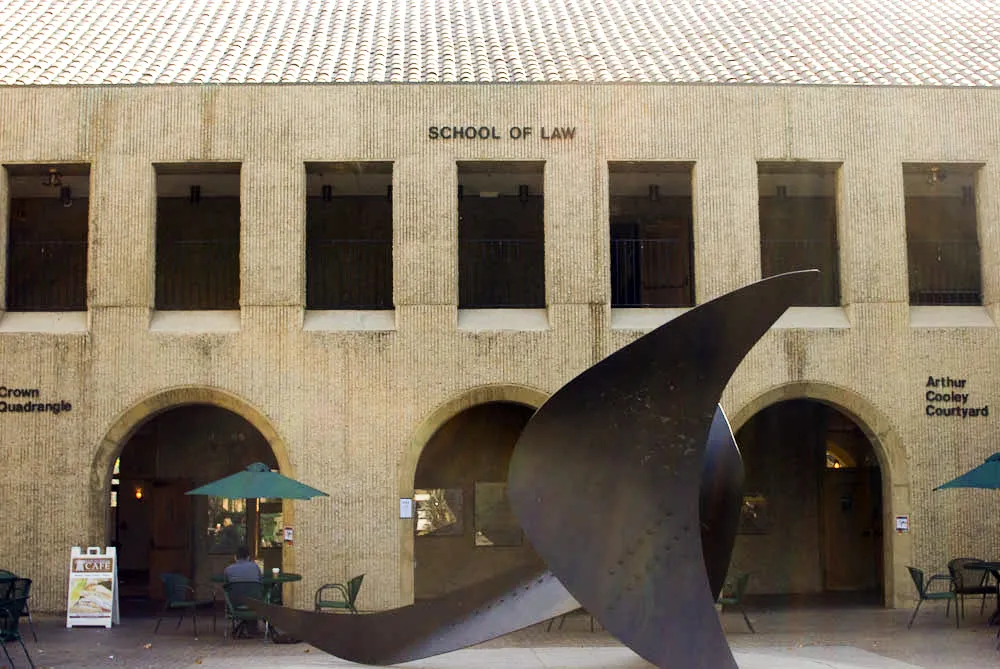
Only a week after the Stanford Law School launched the nation’s first Religious Liberty Clinic, students are already engaged in six legal battles offering real world practice on the subject of religious freedom.
Clinic Director James Sonne said that Stanford has historically been on the cutting edge of providing practical clinical education. The new clinic, which is housed in the Mills Legal Clinic, goes beyond what the Law School regularly offers.
“We think the religious liberty aspect gives a very unique and interesting prism through which to do clinical training,” Sonne said.
Sonne sought to differentiate his clinic from similar offerings at faith-based schools, which largely take clients with shared religious affiliations. By contrast, the Stanford clinic has clients with a wide span of beliefs, including Muslim, Seventh Day Adventist, Jewish and Native American practices.
“There’s a wide variety because part of what we want to show – not only to our students but also to the wider community – is the universal nature of religious liberty,” Sonne said. “For the most part it doesn’t really matter what the religious practice is that’s involved, but what matters is the freedom to practice, not only to believe but [to] manifest that belief.”
Judith Romero, Law School spokesperson, emphasized the professional benefits of the clinic’s diverse range of clients.
“The history of religious liberty in this country offers a rich canvas upon which our students can learn how to be first-rate professionals in service to those in need, particularly the misrepresented or underrepresented,” Romero said in a statement to The Daily.
In addition to a variety of faiths, the clinic’s focus on religious liberty also focuses the historical significance within the American legal system of that constitutional freedom.
The cases the clinic is currently working on include a Native American prohibited from ceremonial pipe smoking and a group of Seventh Day Adventist employees who do not want to work on their Sabbath.
The clinic’s student involvement has been relatively small, with four students admitted winter quarter and six admitted for spring quarter.
“They had no idea other than just the name and a two-paragraph summary about what it was going to be, so that they signed up a year in advance pays a special tribute to the interest among our students in this type of clinic,” Sonne said. “I think it’s fair to say that they’re thrilled with it so far.”
The clinic is also unique in that it is one of the few “full time” programs in the country – meaning enrolled students take no other classes during the quarter – in an effort to replicate the professional practice of law.
Michael McConnell, director of the Stanford Constitutional Law Center, said preliminary planning for this new type of clinic had been in the works for years, as a way to expand the school’s clinical offerings but also to explore the subject matter more practically.
“It’s an idea that I’ve been kicking around with the former dean and the head of the clinical program for several years,” McConnell said. “This is an area of academic and scholarly interest to me, and it seemed to me to be a great idea for this to be an area where students can get some practical experience.”
Like the ten other specialized programs of the Mills Legal Clinic – a Stanford Law School in-house group that operates as a single law firm – the Religious Liberty Clinic provides law students the opportunity to gain firsthand experience in the field by working alongside faculty on cases, which Sonne cited as uniquely valuable for students seeking practical experience.
“[Considering] the modern economy and the modern market for legal services, it’s all the more important for our students to have not just book knowledge but to have…street knowledge – what it is not just to think like a lawyer but to be a lawyer,” Sonne said.